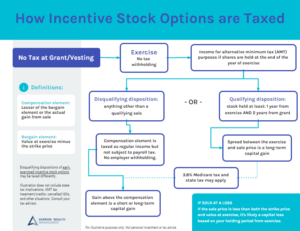Choosing whether to fund a trust with your assets is an important decision in the estate planning process. Since a trust is different from a will, many individuals need both. Here are three main reasons you may want to consider putting your assets in a trust.
Should I put my assets in a trust?
3 main reasons to consider putting assets in a revocable trust:
- Avoid probate
- Retain control over your assets
- Estate tax planning opportunities
What is a revocable living trust?
A revocable trust (also called a living trust) is “funded” during your lifetime and becomes irrevocable at your death. Funding a trust means retitling assets in the name of your trust. Unless you fund the trust, it doesn’t really serve a purpose. During your life, you can add, use, or remove assets in the trust as you would normally and there are no changes to the tax treatment of these assets.
Learn more about the benefits of a living trust.
Using a revocable trust can help you avoid probate
Putting assets in a revocable trust allows you to avoid probate. Some assets, like a retirement account, will pass directly to beneficiaries. Assets that don’t pass directly to heirs (such as a bank account, brokerage account, home, etc.) will go through probate before being distributed according to your will (if you had one) or at the court’s discretion. Probate is an expensive, time-consuming process.
Trusts help ensure your assets are distributed the way you want
Again, without a trust you lose a lot of control about who-gets-what (and when) upon your death. A trust allows you to control everything for decades, assuming it does not conflict with the law. For example, instead of letting an 8-year-old inherit a rental property or investment account outright, you can include age-based milestones and other provisions to help ensure the assets aren’t squandered.
Taking advantage of estate tax planning opportunities with trusts
The federal estate tax exemption for married couples is $13.61M per person in 2024 and portable between spouses. Some states, like Massachusetts, have their own estate tax and a much smaller exemption amount. The Massachusetts estate tax exemption is currently $2M per person and unlike the federal exemption, the amount isn’t portable. Using a credit shelter trust or marital trust after the first spouse dies helps preserve the exemption.
In this example, assets up to the exemption amount ($2M in this example for Massachusetts) would flow from a decedent’s living trust to a credit shelter trust and the remaining assets (if any) would flow to other trusts (a QTIP trust, family trust, etc.). If the surviving spouse dies later in the year, the credit shelter trust would generally bypass the taxable estate. This can reduce or eliminate estate tax at the state level altogether.
What types of assets can you put in a living trust?
Different types of assets can be put into trust during your life, though some are subject to state laws:
- A home, vacation home, or rental property (read more about the pros and cons of putting a house in a trust)
- Savings or checking accounts
- A brokerage account with stocks, bonds, ETFs, and mutual funds
- Ownership in a closely-held business
- Cars
Other types of assets can only flow into a trust after death:
- Retirement account, if the trust is a beneficiary
- Life insurance, if the trust is a beneficiary
As with anything in estate planning, there are several important considerations before putting an asset in trust or naming your trust as a beneficiary, so you’ll need to discuss your situation with your estate planning attorney.
Do I Need a Trust if I Have a Will?
Attorneys Share Real Estate Planning Nightmares
Other considerations before putting assets in a trust
- What’s the cost of putting the asset in a trust? Is it worth the expected benefit?
- What are the implications by retitling an asset in your own name into the name of a joint trust vs a revocable trust in your own name?
- Is the goal probate avoidance or creditor/liability protection? A living trust can help with the former, but you may want to explore other ways to protect your assets such as an LLC, personal umbrella liability policy, or even an irrevocable trust
- What are the future tax implications?
- If married, do you and your spouse have similar legacy goals and beneficiaries? A revocable living trust helps ensure your wishes are kept with your assets, assets that remain after you and your spouse are gone, or in the event they remarry.
Trusts can be an efficient way to accomplish your goals, but they’re not the solution for every problem. Work with an attorney in your area in conjunction with your financial advisor and CPA to develop a coordinated strategy that meets your needs.
Important disclosure: The material in this article is intended to provide generalized information only as to some of the financial planning considerations of revocable trusts and should not be misconstrued as the rendering of personalized legal or tax advice.
Last reviewed January 2024











